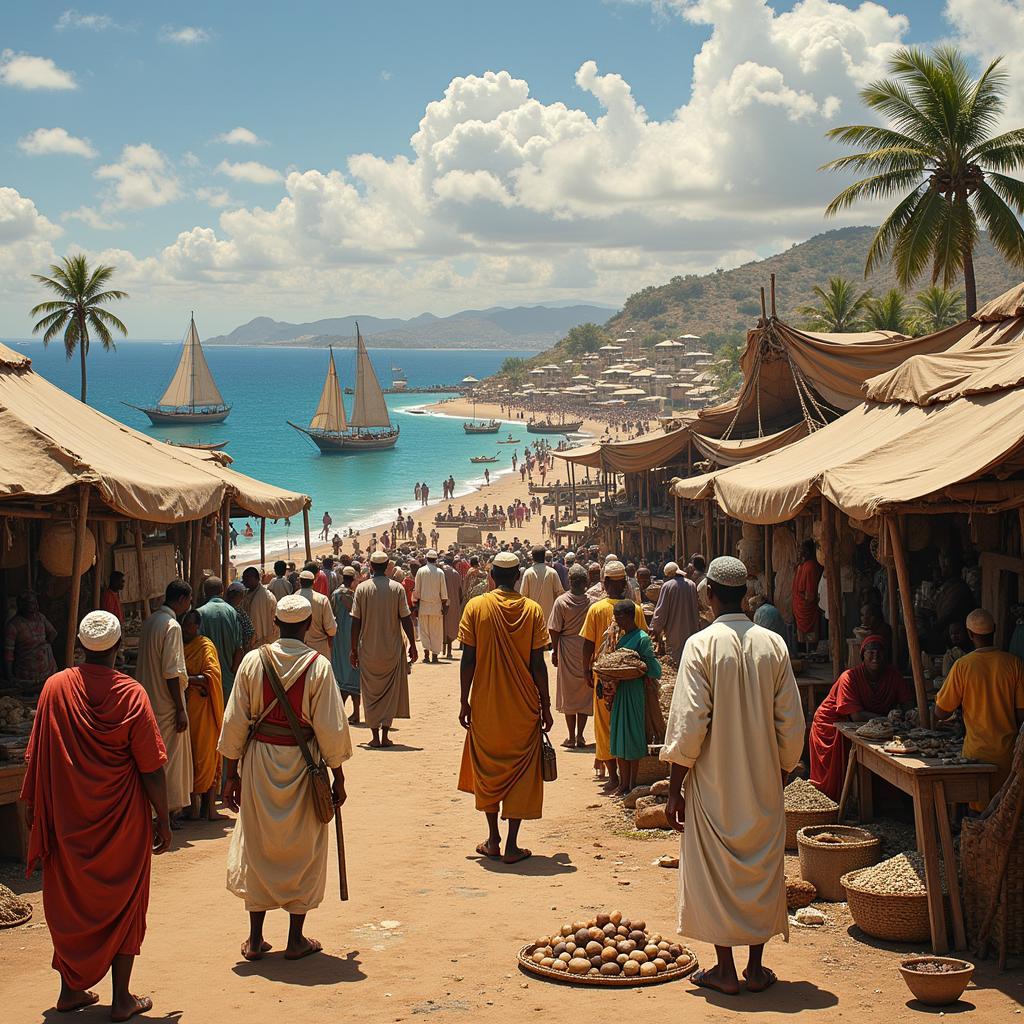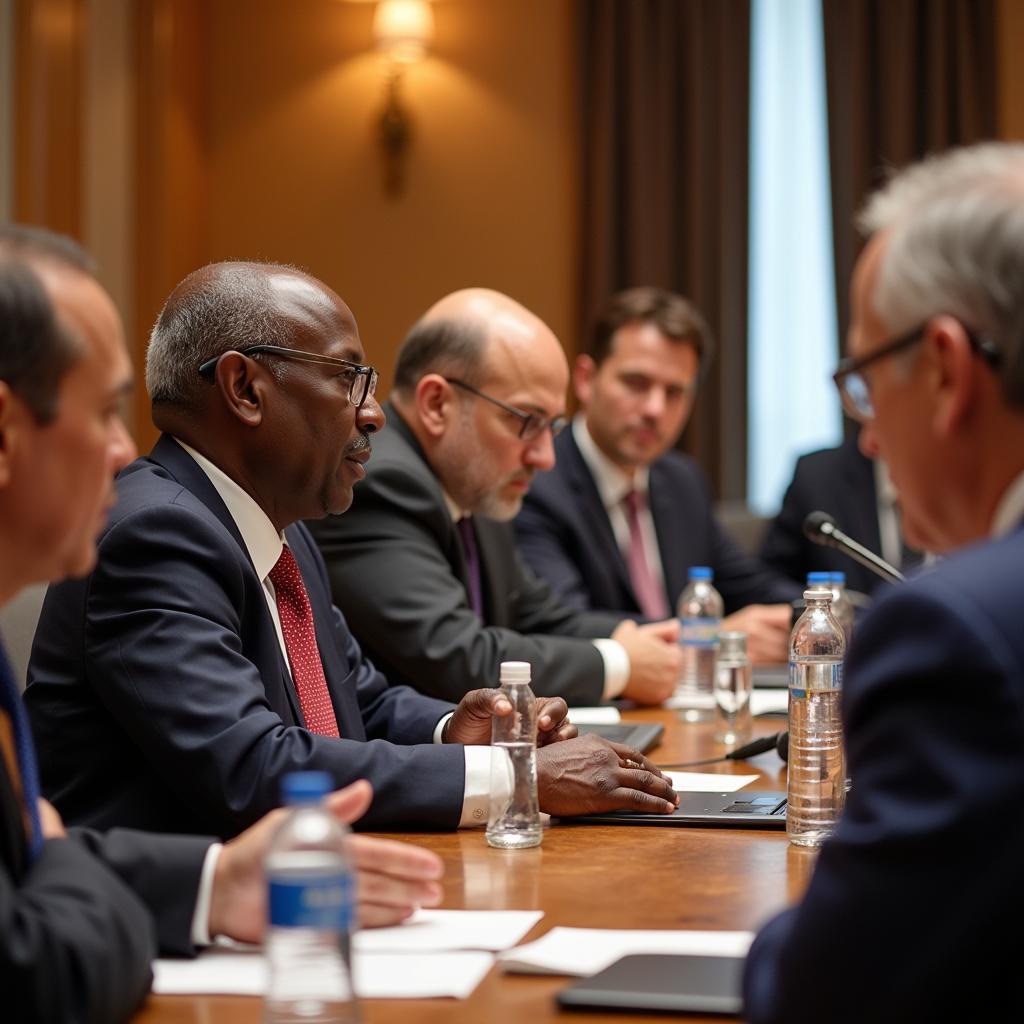The African Indian Alliance: A Historical and Contemporary Perspective
The African Indian Alliance speaks to a long and complex relationship, spanning centuries and encompassing trade, cultural exchange, and political solidarity. This enduring connection, forged through shared struggles against colonialism and a common vision for a just and equitable world, continues to shape the social, economic, and political landscape of both Africa and India today.
 Ancient Trade Routes Between Africa and India
Ancient Trade Routes Between Africa and India
Early Interactions: A Foundation of Trade and Cultural Exchange
The Indian Ocean has served as a bridge rather than a barrier between the two continents. Long before European colonialism, African and Indian societies were engaged in vibrant trade networks. Evidence suggests that these connections date back millennia, with the ancient Egyptians trading for ivory, gold, and incense from the East African coast. This trade intensified during the medieval period, facilitated by the monsoon winds that allowed sailors to traverse the Indian Ocean with relative ease.
Indian merchants, particularly Gujaratis and Parsis, established themselves along the East African coast, integrating into local communities and playing a crucial role in the flourishing Swahili civilization. This interaction led to a fusion of cultures, evident in the Swahili language, which borrows heavily from Arabic and Indian languages, and in the architectural styles that blend African and Indian influences.
Colonialism and Shared Struggles: The Rise of Solidarity
The arrival of European colonialism in the 18th and 19th centuries marked a turning point in the African Indian alliance. Both regions found themselves subjected to the exploitative practices of European powers, leading to shared experiences of dispossession, discrimination, and resistance.
The presence of a significant Indian diaspora in Africa, primarily brought as indentured laborers during British rule, further strengthened these ties. Indians in South Africa, led by figures like Mahatma Gandhi, fought against racial segregation and discrimination. Gandhi’s philosophy of Satyagraha, developed during his time in South Africa, would later inspire African leaders like Kwame Nkrumah and Julius Nyerere in their struggles for independence.
Post-Independence Era: Forging a New Partnership
The wave of decolonization that swept across Africa and Asia in the mid-20th century ushered in a new era for the African Indian alliance. The newly independent nations found common ground in their commitment to the Non-Aligned Movement, advocating for a multipolar world free from Cold War rivalries. This shared vision for a just and equitable international order further solidified the partnership between the two regions.
Economic cooperation became a cornerstone of this relationship, with India providing technical expertise and financial assistance to support Africa’s development. Educational exchanges, cultural programs, and collaborations in sectors like healthcare and agriculture further strengthened the bonds of friendship and solidarity.
 Modern Day African Indian Summit
Modern Day African Indian Summit
The African Indian Alliance in the 21st Century: Navigating New Challenges
Today, the African Indian alliance continues to evolve in the face of new global challenges. Issues like climate change, terrorism, and achieving sustainable development goals require collaborative solutions. Both regions recognize the importance of strengthening their partnership to address these shared concerns.
India’s emergence as a global economic power has led to increased investments in Africa, particularly in infrastructure, telecommunications, and energy. However, this growing economic engagement has also sparked debates about equitable partnerships and ensuring mutual benefit.
Conclusion: A Relationship Forged in Shared History, Embracing a Shared Future
The African Indian alliance is a testament to the enduring power of shared history, cultural exchange, and political solidarity. As both regions navigate the complexities of the 21st century, this longstanding partnership will continue to play a crucial role in shaping a more just, equitable, and sustainable future for all.


